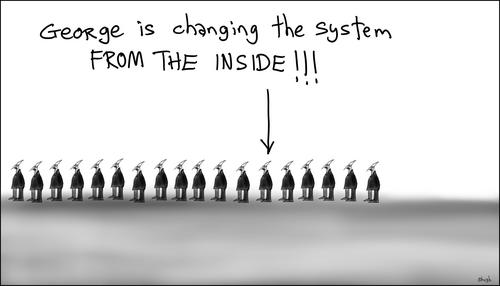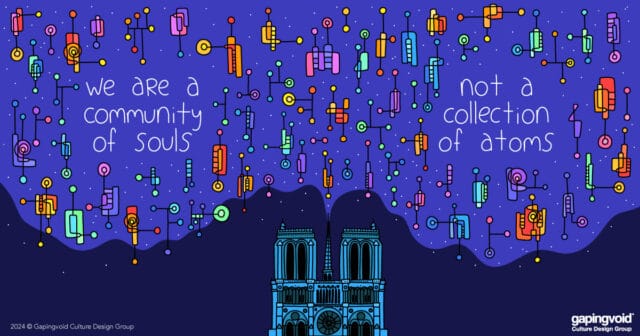
So somebody was asking me the other day, “What’s the deal with these large tech companies? As soon as they get to a certain age and/or size, they all seem to go into ‘crisis’ mode…”
My reply was, well, when you think about it, these large companies are in most ways very fortunate. They have lots of money, lots of smart people working for them, lots of combined knowledge, and lots of material capital to build other stuff with.
i.e. The have lots of capital- human, financial, intellectual, technical etc etc.
But they will also have a lot of baggage. Lots and lots of different entrenched positions to defend. Thousands of them.
So they way I see it, their problem isn’t “material”. Their problem is CULTURAL.
It’s not the sum of their parts that is the problem; it’s the way human beings relate with each other, interact with each other, that is causing the problem.
i.e. Often with tech companies, we wrongly blame the problems on the tech itself. As with all things commercial, it’s the people that matter.
[UPDATE:] One of my favorite marketing writers, my friend, Mark Earls left a comment below:
Great post, mate. And spot on.
I find it striking that all the different kinds of managers I meet in all kinds of different sectors still prefer to describe and draw their businesses as if they were a machine or some technical thing at least; how they prefer technical sounding strategies and definitions of their challenges (“the business planning process” etc) to the honest acceptance that the reason why all businesses are tricky beasts is that they’re built on, with and by humans.
Of course, it’d be easier if businesses were more like machines but they’re not. And if strategies were like mechanical (i.e. human-lite) things – borne of a robo-mind and implemented by an army of replicants, maybe.
The sad truth remains that everything in business is about people, their interactions with each other and the ideas and assumptions that shape those interactions.
I’m not sure it’s just the tech business that suffer this way: finance, manufacturing, airlines and – god bless, em – government agencies are just as delusional about this stuff.
Go get ’em!



